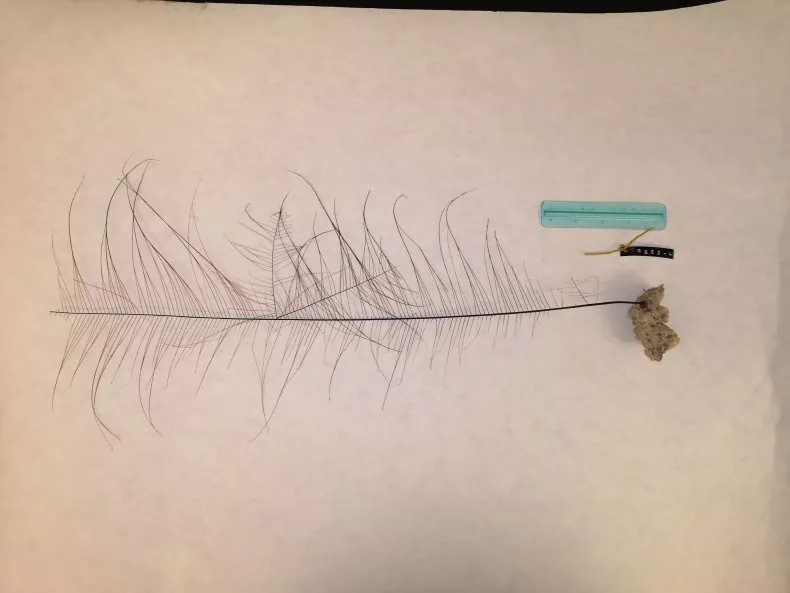The vast waters of oceans are teeming with beautiful marine life that has generated ecosystems bursting with richness. Corals typically come in a variety of forms, sizes, and hues, and are no exception. Some species even shine in the dark.
Scientists recently revealed the discovery of a new type of black coral that thrives in heated temperatures. OceanX teams first found it in 2020 throughout a trip to the Neom area of Saudi Arabia's northern Red Sea. Black coral is frequently found at the ocean's depths. Other species are rarely seen in the Red Sea, however, this new one is. OceanX was able to collect samples from thousands of communities that were flourishing in the warm seas.
The majority of corals dwell in cooler seas across the planet. This new form of black coral is distinct in that it flourishes in tropical waters similar to the Red Sea, with an average temperature of 22 degrees Celsius. Scientists hoped to use acoustic mapping equipment to investigate the area's deep-sea ecology.
Feather-Like Animal Within Deep Waters of the Red Sea
The researchers noticed many feather-like animals, most likely black corals, at a few thousand meters level in the subsurface. They felt amused as they realized they'd never seen that coral before, as the scientists took some samples, following a statement of Giovanni Chimienti, a marine biologist as well as a researcher at the University of Bari in Aldo Moro, Italy who is part of the trip, as biologist informed Newsweek.
Corals may be found up to 6,000 meters (20,000 feet) below the ocean's surface, in which the water is ice cold and also the light is faint or non-existent. Despite this, magnificent coral gardens grow here. Deep-sea corals (also referred to as cold-water corals) have nearly as many species as shallow-water corals, according to experts.
In a report from the National Museum of Natural History, the deep-sea corals, like shallow-water corals, can live as solitary coral polyps as diversely formed colonies with numerous polyps of the same species, or as reefs with several colonies composed of one or more species. Deep-sea corals, on the other hand, do not require sunshine. They get their energy and nourishment from passing currents by catching microscopic creatures.

A picture shows the new species of black coral that was discovered. A recent study of the University of Bari in Italy uncovered a thriving species of black coral within the vast waters of the Red Sea.
ALSO READ: Scary 5,800 feet-Feet Long Brine Pool Near Red Sea Poisons Almost Every Animal to Death
The First Black Coral To Thrive in Warm Waters
The strange coral was subsequently sampled and transported to the Red Sea Research Center laboratory, at which it was determined that it had never before been discovered before. This was what gave rise to the name thermophilia, which is derived from the Greek words thermos means hot plus philia meaning love, or preference for.
This is the first black coral seen in such warm seas. Chimienti stated that it was especially fascinating to find a new type in the twenty-first century, demonstrating that there remain animal species in our world about which we know nothing.
The deep sea is a potential basis for new species, and each life form is exciting since it adds a new aspect to the currently incomplete picture of deep-sea biodiversity that exists today. Furthermore, humanity cannot understand how living things may affect one's knowledge of creatures and the natural environment, as mentioned by Chimienti. Such discovery is especially significant since it involves black coral. These creatures serve a vital function as ecosystem formers in areas where there are no coral reefs. The marine biologist also emphasized that the coral was dwelling in such a "black coral forest" with other corals.
However, Chimienti clarified that these deep-sea species may be able to deal with the consequences of global warming and give hope for life in warmer seas. The rising temperature of the water is an evident hazard to most marine life, particularly deep-sea species that dwell in frigid waters. A deep-sea animal that can tolerate high temperatures can adapt to global warming to some extent.
As a result, it provides some promise for the survival of the ocean's lifeforms but not necessarily for the preservation of the way people understand it presently (including humans).
RELATED ARTICLE: How Can Sea Cucumber Poop Revitalize Coral Reefs?
Check out more news and information on Ocean in Science Times.











!['Cosmic Glitch' in Einstein's Theory of General Relativity Could Be Explained in This New Scientific Tweak [Study]](https://1721181113.rsc.cdn77.org/data/thumbs/full/53435/258/146/50/40/cosmic-glitch-in-einsteins-theory-of-general-relativity-could-be-explained-in-this-new-scientific-tweak-study.jpeg)


